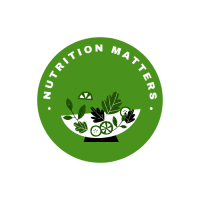Human health, the health of our communities and the state of our environment are intricately connected.
But that’s not what we see when we look around.
I often think that we have lost our way when it comes to food:
- We see rates of preventable chronic illnesses soar and much of that can be attributed to food. At the same time…
- We get overwhelmed by too much information about food and why we should choose one over the other. Moreover…
- We have become addicted to foods with ingredients we can hardly pronounce and we end up questioning our choices and nutrition beliefs too often. Ironically though…
- We have come to love and defend our processed food indulgences, willfully oblivious to how their consumption ends up hacking away at health, longevity and overall quality of life when we’re most ready to make the most of it.
Still, I believe that we can find our way back.
We all want good, long-lasting health and a good life. It’s possible. And here’s the first good reason: real food heals.
Good karma with your meals?
When we grow our food, or buy it from local farmers, we are integrating health and awareness of what it takes to get that meal on the table. We also build a continuity: with the food itself and the people who grow it, with a state of personal health that is to carry us well into our old age, and with the environment.
Wait, what about whole foods that come from far away: dates, avocados, cacao, tropical fruit, coffee, and so many others? Can we foster a connection? I believe we can, if we apply the same principles we do for the local fare. Look for ethically sourced foods, grown in ways that are sustainable for farmers and the environment.
When we care about the origin of each meal we consume, we also acknowledge the wrongness of food waste.
We throw away almost half of the food we have available to us.
You have heard it before, as we all have: too many people are sick from eating too much of the wrong foods, and too many are undernourished from not having access to basic healthy food. If you doubt this, just inquire with your local food bank (or better yet, volunteer) and prepare to be astonished.
Human health, the health of our communities and the state of our environment are intricately connected. That’s a beautiful thing and it is happening when we make better choices.
The reverse is also true.
We have (good) work to do
Yes, there is work to be done and yes, I do believe that it can be done:
- We can befriend real food once again as individuals (hello farmer’s market and gardening!) and as communities (hello again, farmer’s market, gardening, and a thriving local economy!).
- We can help our bodies heal by choosing whole foods to nourish both body and mind and set the way for a long and healthy journey.
- There is no such thing as ‘too late’; making better choices improves health and quality of life no matter at what age we decide to change our ways.
- We must relearn to ‘set the table’ in a way that includes all dimensions of food: how it was produced and where, the nourishment it provides, and the gratefulness that comes with knowing our actions create a better tomorrow.
Because life matters
Losing my parents is pain I will always carry with me. However, they would not want me to get stuck in pain and feeling guilty. What they taught me and illustrated through many years of joyful living was that life is amazing.
Life is beautiful, and every day is worth living. I believe that.
Losing them has become a powerful motivator for choosing to do what I do. I want to help people change their relationship with food so that their life story changes for the better.
But I want to go beyond that. I want to shed light on the many facets of food, drawing from all the lessons I learned as a kid:
- Food grown close to home or in one’s own garden is the most healing of all.
- Real food enables us to travel far in our journey, able to enjoy health, joy and with make good on the promise of a long and well-lived life.
- We should never accept food waste as a fact of life.
- No one goes hungry in a community where people care.
Everyone should have access to food that nourishes.
Everyone should have access to information about food that nourishes.
These are big wishes, I know. But it’s not about leaps and bounds. It’s the small measured steps, the ‘can do’ changes, that take us to where we want to go, whether it is our personal health, the health of our community or of the environment that holds us all together.
I also believe that we can become healthier versions of ourselves, body and mind, when we choose real food and acknowledge the impact our choices have on our community and the world at large.
